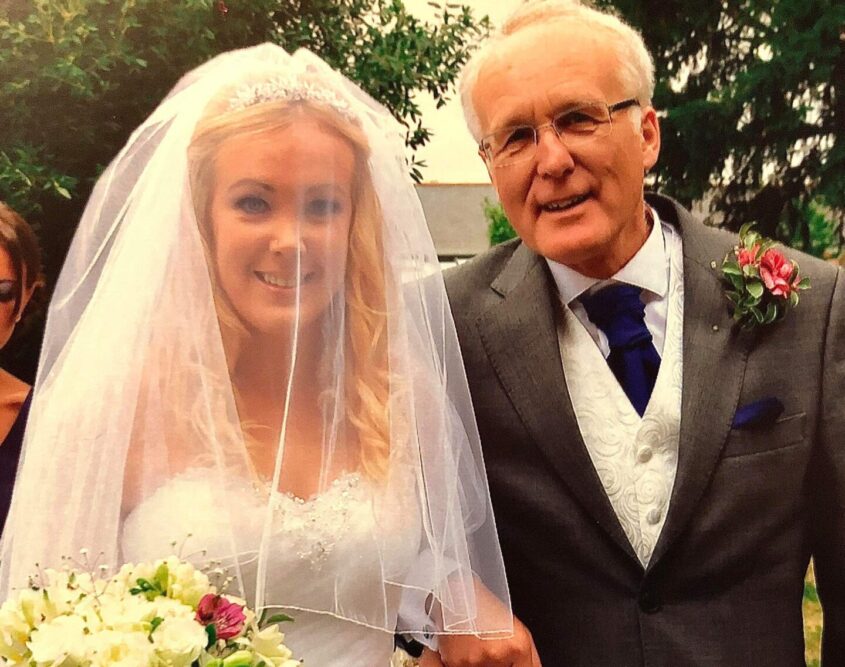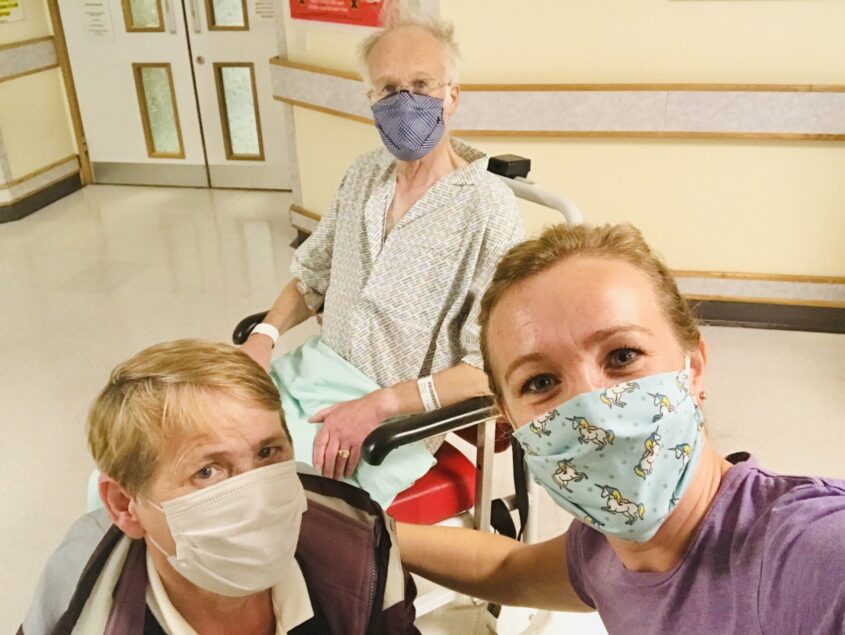



Thousands of people with pancreatic cancer could live longer if shockingly low treatment rates are reversed
Almost 5,000 people with pancreatic cancer could live longer, if shockingly low treatment rates were tackled through an improved care pathway, according to our new analysis. Currently 7 in 10 patients receive no treatment at all – not even chemotherapy. We have now launched our ‘Don’t Write Me Off’ campaign calling on all governments across the UK to fund a new, faster and fairer pathway to give all patients the best chance of survival and quality of life.
For five-year pancreatic cancer survival, the UK currently ranks 15th out of 16 European countries with comparable data – below France, Ireland and Latvia. Our modelling shows that implementing the proposed optimal care pathway, which has been designed in partnership with 300 health professionals and patient representatives, would increase survival rates from 7.1% to 10.4% by 2028 (4). Such an increase would represent the biggest improvement in 50 years and would move the UK up to number five in the rankings.
Pancreatic cancer currently has the lowest treatment rate (34%) of any common cancer- comparing poorly with treatment rates for breast (86%), bowel (74%) and lung (56%), cancers. Of the 10,000 people diagnosed annually in the UK just 10% receive surgery, the only potentially curative treatment. Only a quarter of patients receive life-extending chemotherapy. Tragically, as a result, more than half of people with the disease die within three months of diagnosis.
“For 7 in 10 people with pancreatic cancer to receive no treatment at all – not even chemotherapy - is shocking. Those treatment rates have remained stagnant for at least a decade and people with this devastating disease deserve better."
Patients are often waiting too long for a confirmed diagnosis and for treatment to begin because there hasn’t been a clear view of what ‘good’ looks like; challenges in coordination between different healthcare teams; and significant staff shortages across almost every role connected to cancer. It is estimated that the NHS will be short of 4,000 cancer nurses across the UK by 2030.
While people wait the cancer can spread, and their health deteriorate, leaving them ineligible for treatment they might otherwise have received. Sadly, the majority of patients are diagnosed late and receive a terminal diagnosis. Due to a lack of coordination and expertise in pancreatic cancer, if treatment is not possible, they are often discharged back into the community with a lack of support in place.
Outcomes for people with the disease have barely improved in 50 years, but our analysis shows that if the improved pathway was implemented now, then by 2028:
- Overall treatment rates for people with pancreatic cancer could more than double from 3 in 10 people receiving treatment to 6 in 10
- The proportion of people receiving surgery could almost treble from 10% to 23%
- Over the next five years, almost 5,000 (4,940) people could have a chance to live longer
Nicola Allen’s dad, Clive, was diagnosed with terminal pancreatic cancer in July 2020, but was told that with chemotherapy he could have up to 12 precious months to see his grandchildren grow up. However, his treatment was repeatedly delayed. He spent seven weeks waiting for treatment. Just days before his chemotherapy session was due, he was admitted to hospital. Despite having blood transfusions and drips to try and get him well enough, he was told that he was no longer able to have treatment. Sadly, Clive died just 12 weeks after his diagnosis, aged 67.
Scotland is currently the only UK nation that has committed in its national cancer strategy to focus on speeding up diagnosis and improving survival for pancreatic and other less survivable cancers. Through our ‘Don’t Write Me Off’ campaign, we are calling on all governments across the UK to urgently implement and fund the optimal care pathway to ensure future patients experience a diagnosis, treatment and care journey that is:
- Faster: With diagnosis within 21 days of being sent for tests, and treatment within 21 days of diagnosis.
- Fairer: With expert care and support for everyone, no matter where they live, or their chance of survival.
- Funded: With sustained government funding to make these changes possible, so more people can be saved.
"If Dad’s chemo would have started sooner we know he wouldn't be here now, but maybe we would have had a chance to do more things with him. Just a bit more time."
“There isn’t enough regard for people’s quality of death. It shouldn’t be like oh you’re going to die, off you go. It should be look, you’re going to die, how do you want to approach this? What do you want? What do you need? Purely because I had spoken to a Pancreatic Cancer UK nurse on their helpline, I knew we could get a palliative care package at home for my dad. No one else had told us anything.”
Clive with family
“Dad wanted to stop other people going through this hell. We are dedicated to fulfilling his wish. We need things to change if patients are going to stand a chance and there has to be a better standard of care.”
Nicola is supporting our new petition. We are urging people to sign and tell governments across all UK nations: don’t write off people with pancreatic cancer.
Diana Jupp, CEO of Pancreatic Cancer UK, said: “For 7 in 10 people with pancreatic cancer to receive no treatment at all – not even chemotherapy – is shocking. Those treatment rates have remained stagnant for at least a decade and people with this devastating disease deserve better.
“There is simply no time to wait, delays are costing people their only chance of survival. The path from diagnosis to treatment must be faster, more efficient and encompass all aspect of a person’s care. Nobody should ever feel written off or ‘fall through the cracks’ – regardless of whether their cancer is operable or not.
“The Improved Care Pathway represents the consensus of hundreds of health professionals and people affected by the disease who all care deeply about those diagnosed with pancreatic cancer, wherever they live, having the best possible chance of survival and as much precious time with their loved ones. Now we need governments to implement the pathway and provide the sustained investment needed, so the NHS can meet the unique challenges posed by the deadliest common cancer.”






